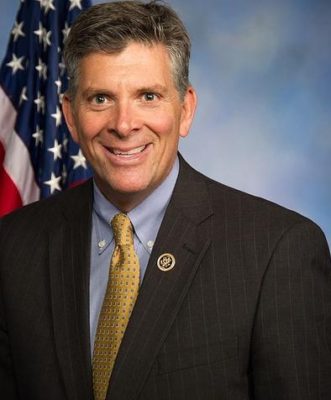18th District Congressman Darin LaHood has introduced an act to the U.S. House designed to help local governments while not bailing out state governments with large debt.
The Taxpayer Protection Program authorizes state and local governments to seek forgivable loans from the federal government, with loan forgiveness available only to states with sound pensions, truly balanced budgets and sufficient rainy-day funds. Both programs implement basic financial safeguards to ensure federal aid is used to support those in need.
States with unsustainable pension debt and a history of fiscal mismanagement would be required to implement reforms to protect their residents and ensure federal money achieves its intended purpose of supporting essential government services during the COVID-19 pandemic under the plan.
The bill prohibits states from using federal money to bail out legacy debt and deficits that are unrelated to the pandemic. The bill also guarantees no state or local government would receive more revenue than they actually lost as a result of the pandemic, limiting quarterly payments to the difference between current own-source revenue collections and collections during the same period in fiscal year 2019. It allows for up to $186 billion in federal and state aid, with $100 billion for states, $75 billion for local governments, $8 billion for tribal governments and $3 billion for the District of Columbia and U.S. territories.
LaHood said in a press release that he knows that the State of Illinois may not directly benefit from the bill due to its own fiscal insolvency over the years. He says the act will get aid to municipal governments that need it while not further burdening taxpayers who are already paying for the state government’s fiscal issues.
According to the language of the bill, Loans which are not forgiven must be repaid in quarterly payments beginning on June 30, 2022. Interest rates shall be set by the Secretary of the Treasury based on the credit strength of the recipient, using the same pricing as the Municipal Lending Facility of the Federal Reserve. Loans will be automatically forgiven for local governments with populations of less than 250,000.




